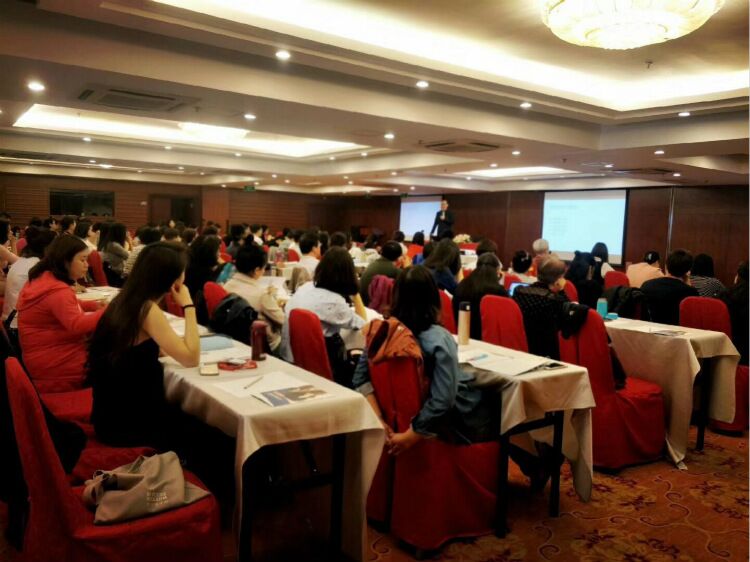

Fang Gang, a sexology professor from China’s Forestry University, just completed his training for the first batch of China’s sexuality educators in March. Those 60 educators are the first national-certificated professionals on “empowerment sexuality education.” Fang hopes that they will be the seeds of China’s sex education for the future bloom.

Photo courtesy of Fang Gang
For the first time ever in Chinese history, a national-certificated sex-ed course is being offered under the supervision of China’s National Committee for Professional Talent Pool, which is responsible for grading primary, middle, and high-school-level certifications. The program is composed of various lectures, including on family sexuality education, resolution of domestic violence and school bullying, and supervision and evaluation of sexuality education.
In an exclusive interview with People’s Daily, Fang, the instructor and organiser of the training course, noted that “sexuality education” encompasses gender identity and gender equality. By introducing the notion of “empowerment sexuality education” on the basis of “comprehensive sexuality education,” he designed a series of courses for Chinese sexuality educators, which emphasized that the right to sexuality as part of fundamental human rights is the illustration of human equality.
The empowerment process is a tailored approach for Chinese adolescents to identify the significance of social rights and obligations and to raise awareness of rights violations and the importance of self-protection, Fang described.
“Typical sex education in China lacks a sense of security due to the long-existing notion of shame in Chinese culture, especially in school education,” Zhang Qinqin, a course trainee and a social worker in a Chinese NGO, told People’s Daily.
The newly-authorized educators’ aim is to gradually sweep out the sense of shame in the traditional sex-ed in China, by means of consulting sex-related issues in school and lectures for preschool and middle school students, but most importantly, mentoring Chinese parents on adolescent sexuality.
Moreover, the educators also pay attention to the sexuality education for the disabled children who are often marginalized by the society and whose normal physical need is often forgotten.

(People attend a sex-ed course in Beijing. Photo courtesy of Fang Gang)
“China is in a great need of sexuality education, as the hurtful and harmful sexual harassment and abuse simply fits a wrongful pattern of sloppiness and ignorance toward Chinese adolescents’ physical and mental health,” said Ge Yeyi, another course trainee.
Sex education in China is always a taboo topic, especially for Chinese parents. Most Chinese parents do not dare even mention any sex-related words in front of their innocent children due to their own background of traditional abstinence education.
“Many students’ answer to ‘where am I from’ is always the same, from ‘my parents picked me from the trash bins/found me in the trash’ to ‘I am a pre-paid delivery.’ These are not jokes, but the reality of Chinese family sexuality education,” said Fang.
On the other hand, China’s educational system is witnessing an unprecedented change.

File pic of The Pace of Growth
In 2017, a series of primary school sexuality education textbooks, The Pace of Growth, was published by Beijing Normal University. Though it caused an intense controversy over the elaboration of sexual intercourse and detailed illustrations of sexual organs, it is one of the many successful trials conducted over sexuality education under the supervision and guidance of China’s Ministry of Education.
Moreover, the sex-ed book Where Willy Went was introduced to most kindergarten pupils in the east China’s Zhejiang Province. In Beijing, the requirement for primary school teachers upon passing over psychological verification which included sexuality education has been implemented since 2009.

File pic
Until 2017, there were 19.2 million preschool students and 142 million middle school students in China, however, sexuality education is still on trial only in several first- and second-tier cities, such as Beijing, Shanghai, and Nanjing, where educational resources are much more concentrated and advanced than in other parts of China.
“The number of China’s sexuality educators is far less than it should be. The anti-stigmatization for sexuality education in China has such a long way to go that I cannot simply give you a number,” said Fang.
UNESCO published the International Technical Guidance On Sexuality Education in January 2018, which outlined eight key parts of educational policies for worldwide teenagers and urges a comprehensive approach to sexuality education.
“The sexuality certification stands for a new start for Chinese sex education after nearly 20 years of exploration. For us, the certification is a consistent impetus and an encouragement to face the rigid social stigma which will be resolved in the short run,” Zhang said with confidence.

 Award-winning photos show poverty reduction achievements in NE China's Jilin province
Award-winning photos show poverty reduction achievements in NE China's Jilin province People dance to greet advent of New Year in Ameiqituo Town, Guizhou
People dance to greet advent of New Year in Ameiqituo Town, Guizhou Fire brigade in Shanghai holds group wedding
Fire brigade in Shanghai holds group wedding Tourists enjoy ice sculptures in Datan Town, north China
Tourists enjoy ice sculptures in Datan Town, north China Sunset scenery of Dayan Pagoda in Xi'an
Sunset scenery of Dayan Pagoda in Xi'an Tourists have fun at scenic spot in Nanlong Town, NW China
Tourists have fun at scenic spot in Nanlong Town, NW China Harbin attracts tourists by making best use of ice in winter
Harbin attracts tourists by making best use of ice in winter In pics: FIS Alpine Ski Women's World Cup Slalom
In pics: FIS Alpine Ski Women's World Cup Slalom Black-necked cranes rest at reservoir in Lhunzhub County, Lhasa
Black-necked cranes rest at reservoir in Lhunzhub County, Lhasa China's FAST telescope will be available to foreign scientists in April
China's FAST telescope will be available to foreign scientists in April